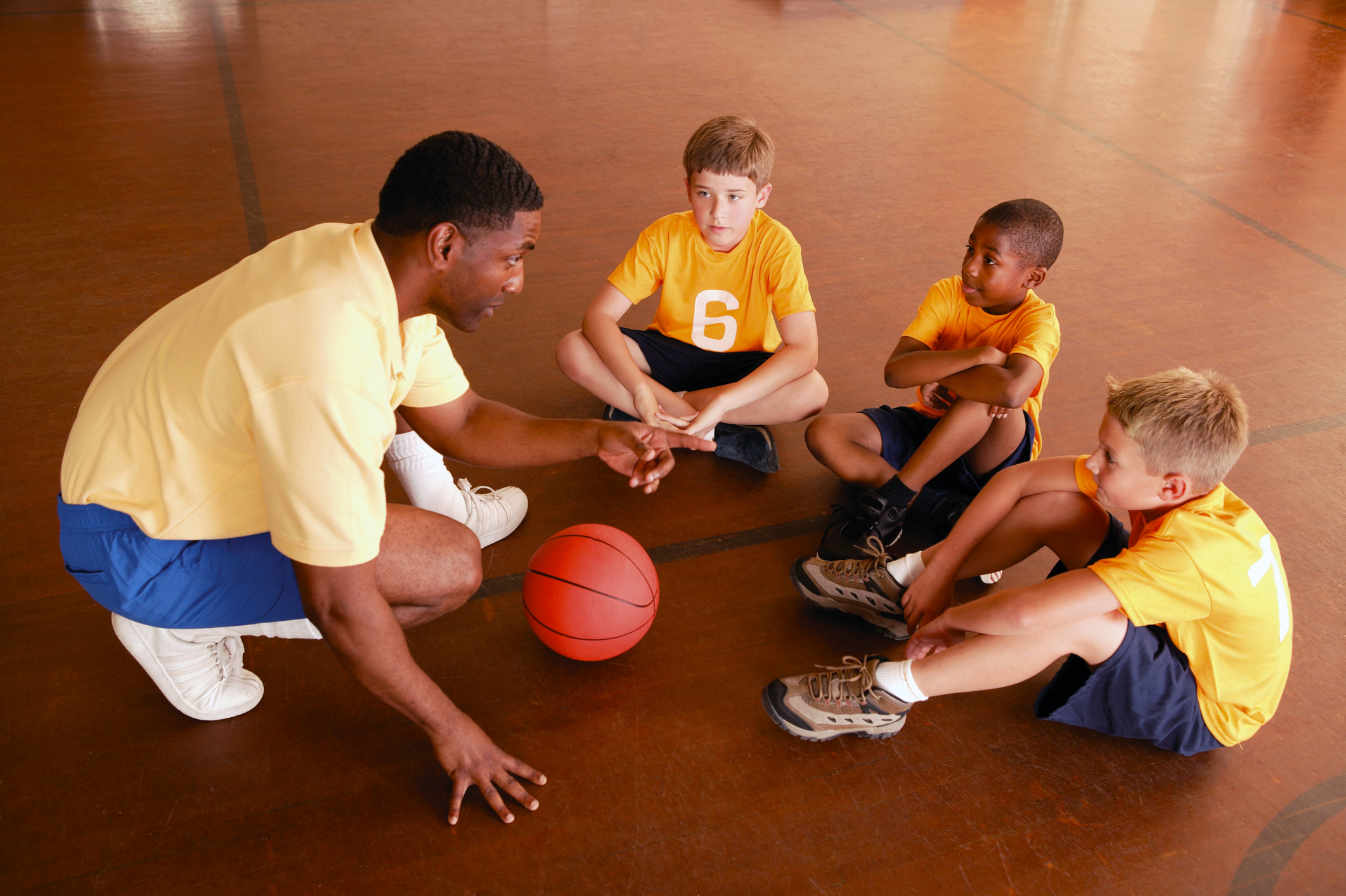“Come on, you pachyderms,” boomed my first soccer coach, Tom Breit, with a big grin on his face. “Squash those bugs! Move your feet. Quicker, quicker! Come on O’Sullivan, is that as fast as you can go?”
Calling us baby elephants? Telling us to squish bugs? What was going on here?
We were 7-year-olds, learning to play soccer, working on our step overs and scissor moves. Coach Breit was getting us to really sell the move by stepping over the ball, and shifting our weight to that foot so we could plant and move in the opposite direction. But in our minds, we were baby elephants, trying to crush some bugs.
Coach Breit was my good friend Steve’s dad, and I loved that man. His deep, booming voice. His genuine smile. And especially, how he greeted me everyday when I walked on the court: “Uncle John, how great to see you today. Ready to have some fun?”
Tom Breit taught me to play soccer, and taught me to play golf. He modeled for me how to love both the sports. It is no coincidence that nearly 40 years later, I am as passionate about both those games as I was as a kid. It’s no coincidence that I am a coach. Why? Because I won the volunteer coach lottery.
In high school, college and professional sports, I was blessed to have some great coaches. Most importantly, though, between Coach Breit, my long time wrestling coach Bob Armstrong, my basketball coach Tom Hall, and others, I was fortunate that the first coach I had in every sport actually knew what he was doing. They had all played the game. They were all high school and middle school teachers. They understood kids, and they understood sports. Like I said, I won the lottery. Many others are not so lucky.
I believe that one of the main reasons we lose 70% of children to organized sports by the age of 13 is because many of those kids have a poor experience and drop out before they ever get to play under a properly trained coach. The number of kids who are coached by well-intentioned yet poorly prepared volunteer coaches – coaches whom are basically set up to fail by the organizations they coach for – has got to number in the millions.
As my friend Dr. Jerry Lynch spoke about at our recent Way of Champions Coaching Conference, “The influence of a coach is NEVER NEUTRAL!”
Yet our leaders, coaching directors and administrators in the sporting world remain trapped by the ostrich effect. We talk about dropout rates, and poor sporting experiences, yet we bury our heads in the sand when it comes to seeing and acting upon the solution.
Here are two shocking statistics for you:
- Research has shown that only 5% of children who play for a properly trained coach quit the next season, while 26% drop out after playing for inadequately trained coaches (1).
- According to 2012 research, of the 6.5 million youth coaches in the US, only 19% had been trained in proper communication and motivation for the children they were coaching, and only 1 out of 3 was trained in the skills and techniques they were supposed to teach. (2)
The solution to curbing the youth sports dropout rate is an obvious one, yet it is willfully ignored by countless sports clubs, recreation departments, and schools throughout the land. It’s even one of the 8 Plays the Aspen Institute has called for in its Project Play Initiative.
We must properly and continuously train each and every coach, regardless of level and status (volunteer or employee).
So many kids get a coach who treats 6 year olds like 16 year olds, because that is what he remembers from his high school days. They may get a coach who is told “just make it fun” since they are not taught how to run a practice or teach a skill. Fun is all fine and dandy, except when no learning takes place. Eventually, sport stops being fun when you do not develop the competence and confidence to compete.
This is especially true when it comes to volunteer coaches, perhaps our most important coaches of all, for they are usually the first point of contact for kids and sport. But we can fix this.
I do a lot of consulting and coaching education work with organizations that rely on volunteer coaches, and inevitably the following question comes up: “We need more people to volunteer to coach. Every season we worry that we will have enough coaches for all the teams. Any suggestions?”
My answer always shocks them.
“Ask more from your coaches,” I say.
Most people laugh and think I am joking. I am not. If you want to attract AND retain great volunteers, you must:
- Pour knowledge into them.
- Mandate coaching education.
- Help them understand the ages and stages they are working with.
- Train them again and again.
- Provide learning opportunities for all levels of coaches.
Why?
First of all, it is my opinion it is a moral imperative to do so. Coaching is a hard job, whether we work with 6-year-olds or 16-year-olds. Coaches work with kids, who can hang on every word. We work in public. We keep score. Games are emotional, kids and parents are emotional, and here is the kicker: They words we say, and the things we do, can stick with a kid for the rest of his or her life.
The influence of a coach is NEVER NEUTRAL! Shouldn’t they be well trained?
Would you drop your kids off at a pool whose lifeguards did not know CPR or have any protocols or training in place for how to supervise the pool and keep it safe?
Would you leave them at a daycare facility that didn’t train their teachers or do background checks to make sure your child is safe? Of course not, so why is the standard of care set so low for our kid’s sports experiences?
This is in no way an attack on the wonderful men and women who do volunteer and dedicate their time to coach. This is a plea to help all of them out, to give them the training and tools to succeed. We owe it to them, and we owe it to the kids to do so.
Retention is not as hard as many organizations believe. They think that if they require more training, they will lose coaches. I ask “How do you know, have you ever mandated more training before?” In actuality, the opposite happens. When organizations require and provide low to no cost, easily accessible training for every coach, more coaches come back year after year, even after their kids stop playing!
Organizations such as Hockey Canada, USA Hockey and USA Rugby have mandated coaching certification, and provided low to no cost, easily accessible options. Yes, there was grumbling at first, (there is always grumbling with change) but today they have more coaching participation and retention than ever before. The quality of coaching has been raised, and education has become part of the culture. I get emails everyday from coaches who are reinvigorated after attending one of our coaching workshops, or reading a recommended book. More training lights the fire, and grows participation in the ranks!
The biggest problem I see is that far too many organizations suffer from the ostrich effect. They have their heads in the sand. Its easier to provide education based upon what they believe their least motivated coach will tolerate. They run the same tired pre-season meeting, or single, voluntary coaching clinic, hand out the same old PDF, and wash their hands of it. They say if we ask too much, no one will volunteer.
In Oregon, where I live, every coach in the state is mandated by state law to do 2 hours of education…on concussions. As a result, many organizations do not want to ask any more of their coaches (I have actually volunteered to do coaching education the last 2 years for my local parks department, and not once have they taken me up on it). I am not saying in any way, shape or form that concussion training is not important. What I am saying is this is woefully inadequate way to educate coaches. The percentage of children, especially young children, who suffer head trauma in youth sport is miniscule. The percentage of kids on a team who suffer from a woefully prepared and/or poorly behaved coach is 100%. Those kids will drop out at a rate that is five times higher than a trained coach. Where is the law preventing this?
Amongst every group of coaches there are passionate, eager learners. They will devour coaching 1.0, and are ready for 2.0 and 3.0. But it is nowhere to be found, and thus coaching becomes a volunteer job they struggle through, instead of a vocation they look forward to. Is it any wonder they don’t come back the next year?
It’s time, according to organizational consultant and youth sports expert Ruth Nicholson, to stop treating volunteers coaches as people who do a job, and treat them like volunteer employees. “In my experience,” says Nicholson, “treating volunteers like valued employees results in greater effort and better job performance. By offering clear support, providing clear expectations, and asking for meaningful contributions, organizations discover that their volunteers are willing to give increased value to programs and invest more in organizational success.”
Here are some additional low to no cost ideas for sports providers to provide their coaches:
- Build an app with a season worth of age appropriate practice sessions for your coaches, teach them how to use it, and down the road add video showing them what the sessions look like
- Sign up your coaches and pay a nominal fee for an app or digital database of practices provided by organizations such as the NSCAA, www.TheDrillBook.com, US Lacrosse and others
- Have your high school coaches run a free clinic or two and make it mandatory to attend
- Require your best, most experienced staff coaches spend time at the grassroots level working with the young kids in your program, and not just with the older kids. Countries that produce the best athletes per capita (Iceland, Finland, Sweden) have been doing this for a while and it pays dividends.
- Set up a free email autoresponder such as Mail Chimp and each Monday it will automatically email your coaches 2 sessions for the week plus other tips and info
- Partner with an organization such as the Changing the Game Project, Positive Coaching Alliance or Proactive Coaching that provides workshops, online materials and booklets for your coaches
- Put together a library of books on coaching, not just technical but on leadership as well
In fact, lets jumpstart this. Why don’t our national governing bodies such as US Soccer, USA Hockey and others provide no cost, entry level coaching education to all current high school and college age athletes? This is the next generation of coaches, so why not instill a foundation of what it means to coach, and an understanding of the need for being a lifelong learner in them? To me this is a no brainer.
It is time that our leadership on the local and national level stops ignoring our coaching problem. It is time we certify all coaches, in every sport, through low cost, easily accessible courses (check out this great article about the correlation between low cost coaching education and success in the soccer world). If we continue to rely on volunteer coaches at the grassroots level, we must raise the bar in terms of mandatory training. Yes, we will lose a few, but you would have lost them anyways. What you will get in return, according to those who have already raised the bar, are better coaches, and more of them.
And here is the best part:
Coaches who have been well trained and provided with the tools to enjoy coaching more come back year after year, even after their kids move on. Over time you will build a stable of well-trained enthusiastic coaches. You will elevate your program, and improve the experience for kids.
Let’s work together to end the youth sports coaching lottery, and provide every kid with a well trained coach from day one. Why?
Because the influence of a coach is NEVER neutral! It’s up to us to ensure it is a positive one.
It’s up to us to train every single coach, starting today!
(Do you know any organizations that are requiring every grassroots coach to be certified? Share it with us below)
Resources:
(1) Barnett, N. P., Smoll, F. L., & Smith, R. E., “Effects of Enhancing Coach-Athlete Relationships on Youth Sport Attrition,” The Sport Psychologist, 6:111-127, 1992.
(2) Trends in Team Sports, Sporting Goods Manufacturers Association, Fall 2012.














Comments